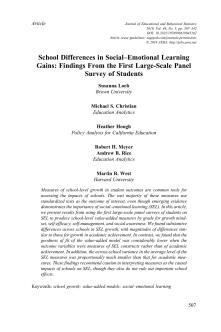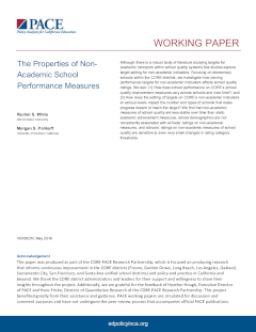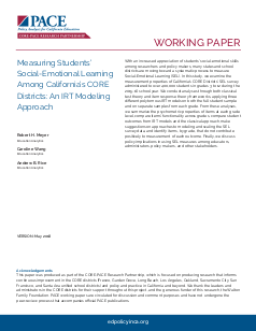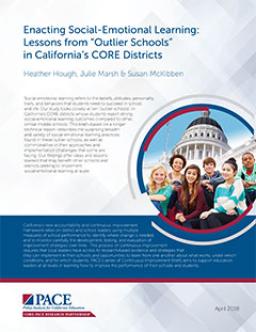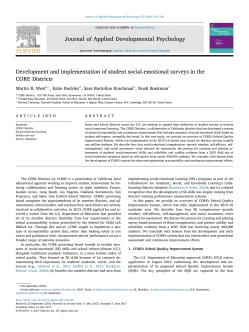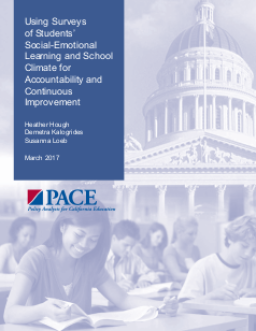Findings From the First Large-Scale Panel Survey of Students
Published
Summary
This article discusses the use of standardized tests as the primary tool for assessing school-level growth in student outcomes, despite the emerging importance of social-emotional learning (SEL). It presents results from large-scale surveys of students on SEL constructs, and finds significant differences across schools in SEL growth, with magnitudes of differences similar to those for academic achievement. However, caution is recommended in interpreting measures as causal impacts of schools on SEL, as the goodness of fit of the value-added model was considerably lower for SEL measures.
Published
Summary
This study examines the impact of target setting for non-academic indicators on school quality ratings in CORE districts' elementary schools. The authors found that non-academic measures of school quality vary over time, are not consistently associated with demographics, and are sensitive to small changes in rating thresholds. The results suggest a need for more research on target setting for non-academic indicators in school quality systems.
An IRT Modeling Approach
Published
Summary
This study examines the properties of California's CORE Districts' SEL survey, which measures social-emotional learning in students. The survey was given to over 400,000 students in grades 3-12. The study uses both classical test theory and item response theory frameworks to analyze the data and make recommendations for modeling and scaling SEL survey data. Policy implications are discussed for educators, administrators, policy makers, and other stakeholders.
Practices and Supports Employed in CORE Districts and Schools
Published
Summary
This study explores ten "outlier schools" in California's CORE districts that have strong social-emotional learning outcomes. The brief and infographic summarize the various practices found in these schools and the common implementation challenges faced. The findings offer lessons that can help other schools and districts implement social-emotional learning at scale.
Published
Summary
States and school districts across the U.S. are seeking to expand their definition of student success to include social-emotional learning. The CORE Districts, a collaborative of California districts that has developed a system of school accountability and continuous improvement that includes measures of social-emotional skills based on student self-reports, exemplify this trend. In this case study, we provide an overview of CORE's School Quality Improvement System, which was implemented in the 2015–16 school year across six districts serving roughly one million students.
Published
Summary
The use of social-emotional learning (SEL) and school culture/climate (CC) measures is a promising way to understand school performance. SEL and CC measures are reliable, distinguish between schools, and relate to academic and non-academic measures. They can identify areas for improvement within schools, such as subgroup gaps. Incorporating these measures into higher stakes accountability systems requires further research.
